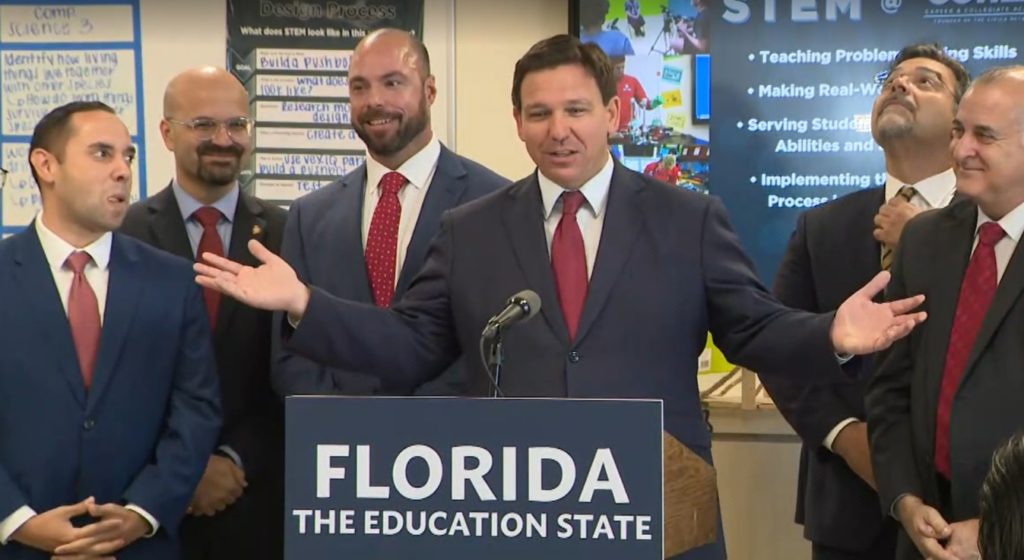Florida teachers’ union membership declined 15% after state law prohibited union strong-arming
The Florida state teachers’ union is bleeding members by the thousands, a year-end report reveals.
The Florida Education Association (FEA) told the U.S. Department of Labor it lost 15.5% of its…

The Florida state teachers’ union is bleeding members by the thousands, a year-end report reveals.
The Florida Education Association (FEA) told the U.S. Department of Labor it lost 15.5% of its members (or over 20,000 educators) during the 2023-24 school year.
FEA’s decline started during the pandemic and has now been accelerated by new state laws.
In May 2023, Gov. Ron DeSantis signed a paycheck protection law prohibiting unions from withdrawing dues directly from teacher paychecks.
It also banned union officials from doing union tasks during the hours of their full-time job or passing out membership materials at school.
Union organizers have been previously accused of harassing teachers at school to grow their enrollment.
Once DeSantis placed boundaries around union activity, membership plummeted.
“The only explanation for the sharp decline in membership is that the loss of payroll deduction made it more difficult for FEA to deceive or strong-arm educators into signing up for membership,” wrote Maxford Nelsen, director of research and government affairs at the Freedom Foundation.
“Even just the loss of payroll deduction and the coercive practices associated with it has allowed government unions’ membership rate to start declining towards its natural, unsubsidized level. That union membership has fallen so far, so fast without it is a testament to just how reliant public-sector unions have become on government backing and support.”
And the national unions are struggling too.
The National Education Association lost over 12,000 members during the 2022-23 school year and nearly 18,000 members during 2024.
In Florida, dozens of public sector unions are even losing their certification because they can’t keep enough members.
DeSantis’ law required unions to maintain a 60% membership minimum to be certified. Certification legally requires employers to bargain with the union instead of with individual employees.
Earlier this year, 22 local teachers’ unions were reportedly hanging by a thread due to low participation.
One such union is United Teachers of Dade (UTD), based in the third-largest school district in the nation, Miami-Dade.
This summer, a grassroots rival, the Miami-Dade Education Coalition, tried to replace UTD, arguing the union was “raking off millions of dues dollars every year and using them to line the pockets of its leaders and corrupt politicians to advance a political agenda repugnant to at least half its members.”



